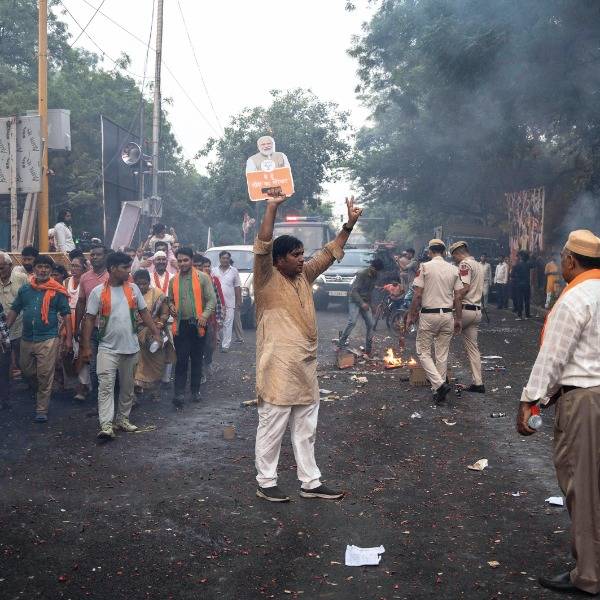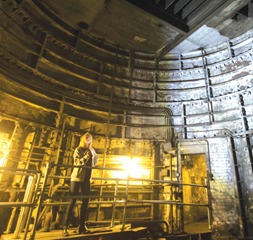The Netherlands has long been one of the most tolerant and progressive countries in the world. A country which humanists could proudly look to as a model of reason and humanity. But the electoral success of an anti-immigration populist is raising disturbing questions about the limits of Dutch tolerance and multiculturalism. The Netherlands was created four centuries ago when Protestant and Catholic Dutch united in opposition to their Spanish rulers. The religious freedom that enabled Protestants and Catholics to live in harmony made the Netherlands a haven for freethinkers and religious minorities. In the twentieth century, it gave birth to the strongest humanist movement in the world. In the last years of the century, mass immigration from Muslim nations, principally Morocco and Turkey, brought a new culture to the Dutch mix.
Dutch politics has always been a very sedate, moderate, consensual affair. Proportional representation means that every government is a coalition. The most radical event in Dutch politics in the last fifty years was the 1992 creation of a government that did not include the Christian Democrats. Even then, the ruling Purple Coalition made up of the free-market Liberal Party, the centrist Social Democrats, and the centre left Labour Party still consulted the opposition Christian Democrats and avoided policies that might upset them too much. Consensus is valued as an important policy goal in its own right.
On 6th March of this year, the sleepy world of Dutch politics received a rude awakening. In local elections, followers of Pim Fortuyn took 35 per cent of the vote in Rotterdam, Holland's second largest city. The Labour party came second with a mere 22 per cent.
The outspoken Pim Fortuyn who made his reputation with a book titled, Against the Islamisation of Our Culture: Dutch Identity as a Fundamental has swiftly become the most talked about figure in recent Dutch history. His party is now running a close second to Labour in national polls for the May general election. Commentators are preparing their obituaries for the Purple Coalition.
The support for the charismatic Fortuyn is partly a protest vote against politics as usual. But many people are also attracted to Fortuyn's stand against immigration. In one poll before the March local elections, almost half the 18-30 year-olds agreed with Fortuyn's goal of zero Muslim immigration, and said they would vote for his party in the general election.
Anti-immigrant populists are nothing new in today's Europe. Haider in Austria, Le Pen in France, Bossi and Berlusconi in Italy, are just the most familiar rascals in a continent-wide resurgence of right-wing demagogues.
At first glance, the shaven-headed Fortuyn may look like another far right racist, but he does not fit so easily into the stereotype of the small-minded bigot. He is a proudly gay former professor of sociology. And he claims his opposition to immigration is based not on racism but on concerns that Muslim immigrants are refusing to integrate into Dutch culture. He attacks multiculturalism as a threat to the Dutch tradition of tolerance.
Pim Fortuyn's manifesto calls for immigrants to be given extra social support including more resources for housing and education to help them integrate into the "Judeo-Christian-humanist" culture of Holland. He also urges more legislation and education to combat "arranged marriages, honour revenge, and female circumcision."
Liberals know how to fight against old-fashioned racism, but they are finding it much more difficult to dismiss Fortuyn's ideas. Fortuyn's opponents accuse him of 'Islamophobia'. But this is a label that some of Britain's leading liberals such as Polly Toynbee have said they would wear with pride.
Fortuyn's fortunes have been helped by the intolerance of some of his opponents: one Imam responded to Fortuyn's criticism of Islam by comparing gays unfavourably to pigs.
Mainstream politicians in Holland have found it difficult to respond to the loquacious professor. So far they have shown few signs of pandering to his anti-immigration demands. But nor have they come up with an alternative answer to voters' concerns about illiberal Islamic traditions.
If the mainstream parties don't find an effective response to Fortuyn very soon, he may lead the largest party in parliament after the May 15 general election. Consensus politics will become far more difficult. And Dutch politics will be livelier than it has been for generations. But if the progressive parties can find new ways to address Fortuyn's criticisms of multiculturalism, then liberals all over the world will once again look to Holland for inspiration.
***
Pym Fortuyn was assassinated during his election campaign by an environmental activist. He had roused the anger of the Islamic community, but said he was not racist: "Islam is a religion and culture that is not tied to a race."
The assassination has shocked Netherlanders, who regard their country as tolerant and peaceful. He had clearly roused deep feelings of fear of minority communities and the increase in crime. There has been a growing dissatisfaction with the consensus politics of the country. There has been soul searching over the behaviour of Dutch troops in Srebenica which led the entire Dutch government to resign.
Pym's Party did well during the election, drawing a sympathy vote, ensuring 24 seats and a possible place in a coalition government. The government is expected to turn to the right in common with much of Europe.

